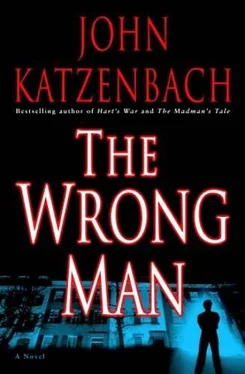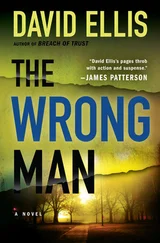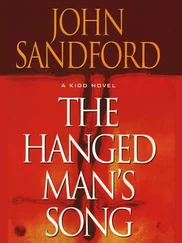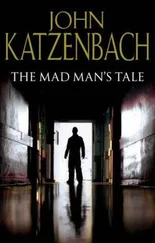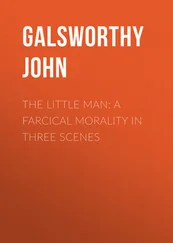Hope lurched down the stairs, moving as quickly as she could, the pit of her stomach still clenched with tension. She barreled ahead, shoulders hunched forward, needing desperately to get outside. When she looked up, she suddenly saw a form in the lobby doorway, looming in the darkness ahead of her. She nearly froze with crushing fear, until she saw that it was only two other tenants entering. One of them snorted, “Hey!” as she pushed past them, out into the night cold, welcoming the darkness that surrounded her. She nearly jumped down the last stairs to the sidewalk and, without a look back, cut across the small street toward her car, fumbling with her keys, before thrusting herself into the driver’s seat. Inwardly, she could hear a voice insisting, Escape! Get away now! She was about to pull out when she looked up and once again froze.
Michael O’Connell was sauntering down the sidewalk opposite her.
She tracked him with her eyes as he paused outside the building, dug in his pocket for his keys, and then, not even glancing in her direction, stepped up and disappeared inside. She waited and then, a few moments later, saw lights flash on in his apartment.
Hope feared that he would somehow know that she had been there. That she had disrupted something, left something out of place. She put her car in gear and pulled out of the parking spot. Without looking back, she drove to the corner, then turned and continued down a wide street for several blocks, until she saw another spot where she could pull to the side. She slid the car in and thought to herself, What was it? Three minutes? Four? Five? How many seconds existed between her break-in and his return?
Her stomach clenched, and the nausea of fear finally overcame her. Hope opened the door to her car and was quietly and privately sick, vomiting into the gutter all of Mrs. Abramowicz’s Earl Grey tea.
Scott got an early start the following morning, rising in his cheap motel room just before dawn and driving in the dreary gray November half-light to a spot just across from the house where Michael O’Connell had grown up. He shut down the car and sat, waiting, feeling the first hints of winter seep into the compartment. It was a sad street, a step above a trailer park, but not much of one. The houses were all low-slung, and all in need of repair. Paint peeled from eaves, gutters had pulled free from rooflines, broken toys, abandoned cars, and dismantled snowmobiles littered more than one front yard. Screen doors flapped in the wind. More than one window had been patched with a sheet of heavy-duty plastic. It seemed a place abandoned by options. It was a place for six-packs, lottery-ticket and motorcycle dreams, tattoos and Saturday-night drunks. The teenagers probably worried about pregnancy and hockey in equal doses, and the older folks were more likely consumed by whether their small pensions would keep them off food stamps. It was one of the least friendly spots Scott had ever seen.
As at the school the afternoon before, he knew he was completely out of place.
Scott watched the morning ebb and flow of children heading to school buses and men and women carrying lunch pails heading to work. When things quieted down, he stepped out of the car. He had a roll of $20 bills in his pocket and figured perhaps more than a few would be spent that morning.
Turning his back on O’Connell’s home, Scott headed to the nearest house, directly across the street.
He knocked loudly and ignored a dog’s frantic deep-throated barking. After a few seconds, a woman angrily shouted at the dog to quiet down, and the door opened.
“Yes?” A woman in her late thirties with a cigarette hanging from her lip, dressed in a pink coat with a grocery-store logo on it, answered the door. She struggled to hold a cup of coffee in one hand while grasping the dog’s collar with the other. “Sorry, he’s pretty friendly, really, but just scares the hell out of folks, jumping all over them. My husband keeps saying I need to train him better, but…” She shrugged.
“It’s okay,” Scott said, speaking through the screen of the exterior door.
“How can I help you?”
“I’m with the Massachusetts State probation department,” Scott lied. “We’re just doing a presentencing check on a first-time offender. A Michael O’Connell. Used to live across the street here. Did you know him?”
The woman nodded. “A little. Haven’t seen him in a couple of years. What did he do?”
Scott thought for a moment, then said, “It’s a robbery charge.”
“Stole something, huh?”
Yes, Scott thought. “Seems that way.”
The woman snorted. “And got his damn fool self busted, huh? I always figured him for something a little more clever.”
“Smart guy, right?”
“Acted smart. I’m not sure the two are the same.”
Scott smiled. “Anyway,” he said slowly, “what we’re really interested in is background. I’ve still got to interview his father, but, you know, sometimes the neighbors…” He didn’t need to finish because the woman nodded vigorously.
“Don’t know too much. We’ve only been here a couple of years. But the old man-well, he’s been here since the Ice Age. And he ain’t particularly popular around here.”
“Why is that?”
“He’s on disability. Used to work at one of the shipbuilders over in Portsmouth. Had some kind of accident. Said he hurt his back. Collects a check every month from the company, from the state, and from the Feds, too. But for a guy that says he’s hurt, he seems to get around okay. Moonlights as a roofer, which is kinda odd work for a guy who claims to be crippled. My husband says he gets paid in cash under the table. I always figured it would be some tax guy snooping around here, asking questions.”
“That doesn’t say why people don’t-”
“He’s just a mean-ass drunk. And when he gets drunk, he gets abusive. Makes a racket. You can hear him screaming all sorts of language in the middle of the night, except, odd thing is, there ain’t no one there for him to scream at. Sometimes he comes out and shoots off some old gun he keeps in that mess he calls home. There’s kids around, but he don’t care. Took a shot at one of the neighborhood dogs once, too. Not mine, luckily. Anyway, opened fire for no real reason at all, just because he could. Just a bad dude, all around.”
“And the son?”
“Like I said, I hardly knew him. But the apple, as they say, don’t fall far from the damn tree. At least, don’t sound like it.”
“What about the mother?”
“She died. I never knew her. It was an accident. Or so the story went. Some people think she took her own life. Others want to blame her old man. Police looked pretty hard at the whole thing. It was pretty suspicious. But then, it got dropped. Maybe something in the papers back then, I don’t know. It happened before I got here.”
The dog barked once more, and Scott stepped back.
“Thanks very much,” he said. “One thing. Please keep this confidential. It sort of screws up any questions we might ask if people start talking.”
“Ah, sure.” The woman pushed at the dog with her foot and took a drag from the cigarette. “Hey, can you folks down in Massachusetts put the old man in jail alongside the kid? It sure would make things quieter around here.”
Scott spent the rest of the morning working his way around the neighborhood, pretending to be a variety of investigators. Only once did he get asked for some identification, and he backed his way out of that conversation quickly. He didn’t learn much. The O’Connell family had predated most of the other folks in the neighborhood, and the impressions they had made limited their contact with their neighbors. Their lack of popularity helped Scott in one regard: folks were willing to talk. But what people said merely reinforced what Scott had already heard or presumed.
Читать дальше
